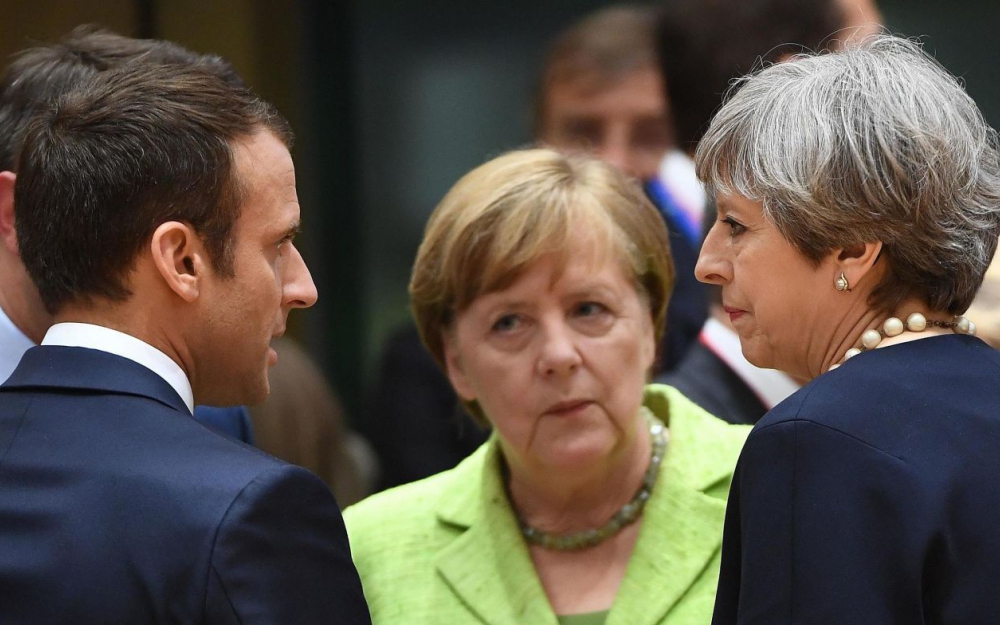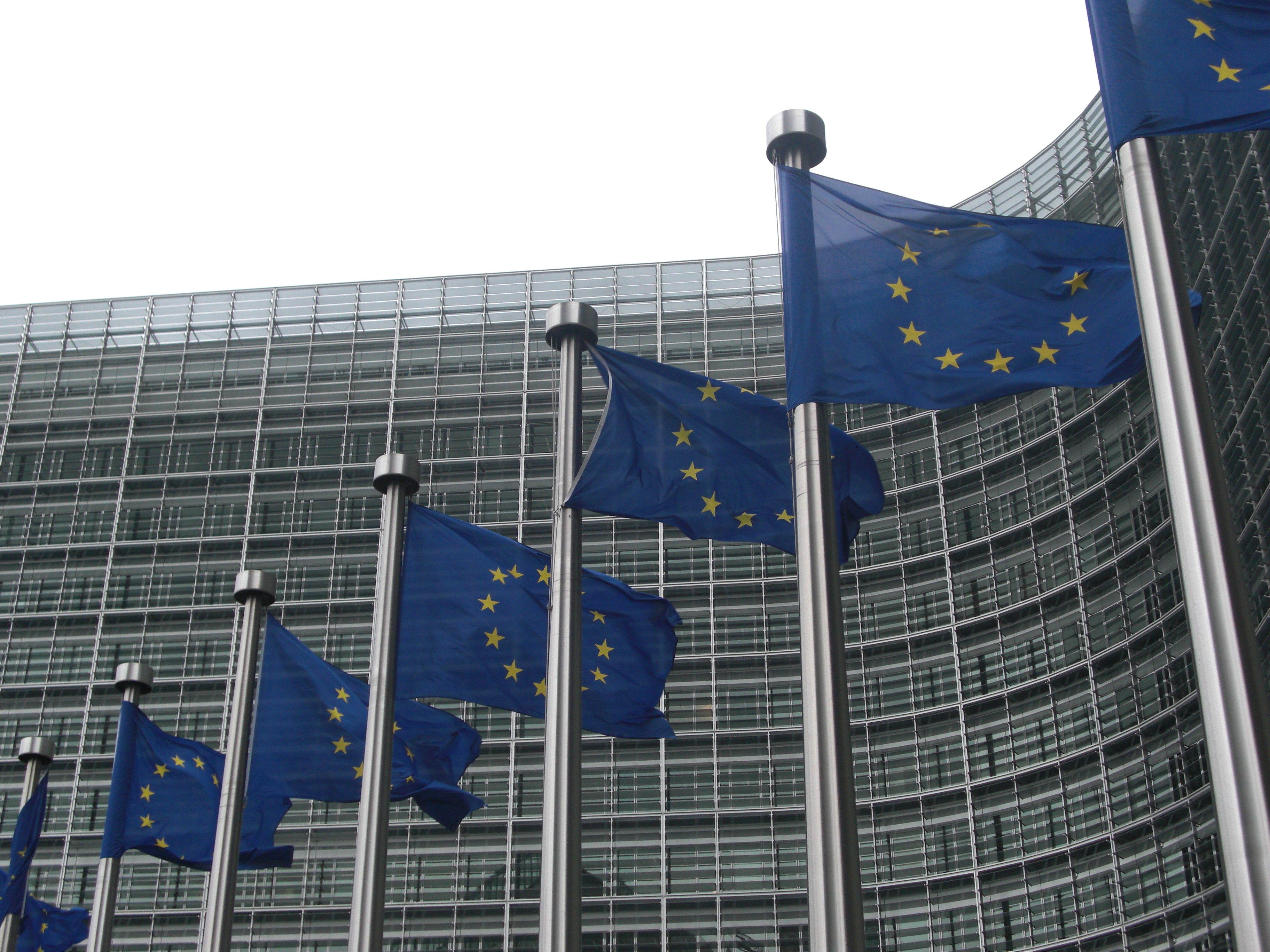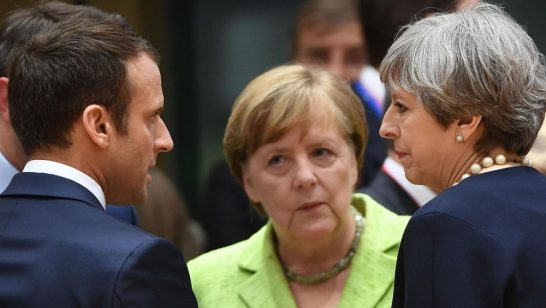
It was May 2017 and it was the comment heard around the world. In the wake of a disastrous G7 Summit, German Chancellor Angela Merkel made a campaign stop at a packed beer tent in Bavaria and gave a now-infamous speech to a group of CSU supporters. “The era in which we could fully rely on others is over to some extent,” she declared, adding “we Europeans truly have to take our fate into our own hands.” It was only a few sentences, but it was enough to throw transatlanticists in Europe and the United States into a frenzy, lamenting the impending certain death of the transatlantic relationship. Since then, other European leaders have echoed Merkel’s sentiments. “Europe can no longer place its security in the United States’ hands alone,” French President Emmanuel Macron said in Paris in August 2018. That same month, German Foreign Minister Heiko Maas penned a controversial op-ed stating “the US and Europe have been drifting apart for years.”
At the center of the debate regarding the future of the US-European relationship is the idea of European strategic autonomy. What strategic autonomy actually means for Europe and the transatlantic relationship is the subject of countless reports, op-eds, and expert roundtables on both sides of the pond. Alina Polyakova and Benjamin Haddad recently gave a pithy definition in Foreign Affairs that described it well: “Strategic autonomy means, first and foremost, a vision for Europe as an actor on the world stage capable of defending itself at home and pursuing its objectives abroad.” That is a worthy goal for Europe, and one the US should rally behind.
Although strategic autonomy remains largely unrealized, the idea is anything but new. The continent has been working toward it — albeit unenthusiastically — for years. At the 1998 St. Malo Summit, Jacques Chirac and Tony Blair signed a declaration that recognized the EU’s need to “have the capacity for autonomous action.” In June 2016, the EU espoused a new Global Strategy that focused on the EU untethering itself from the foreign policies of others, and put its own citizens’ interests first. Finally, in December 2017, the EU launched the Permanent Structured Cooperation (PESCO) to develop more efficiently the continent’s defense capabilities. If there is something new in all this, it is that Germany now seems to be trending toward putting distance between the US and Europe. Historically, they have been reticent to do so.
In the United States, however, reactions to strategic autonomy (both in the defense and foreign policy spaces) have always been mixed, and at worst, hostile. Even in 1998, at NATO’s 50th Anniversary Summit, in the wake of the St. Malo declaration, then-Secretary of State Madeleine Albright said that there should be no de-linking of European defense from NATO, no duplication of existing efforts, and no discrimination against non-EU members. The reaction to PESCO was similar. Policymakers primarily view it with concern; as a waste of money on European projects that add marginal value at best, and at worst, something that could potentially undermine NATO if matured to a certain point.
It is also concerning to the US defense industry. Earlier this year US Ambassador to NATO, Kay Bailey Hutchison, said, “Certainly, we do not want this to be a protectionist vehicle for EU.” Responses like this are misguided. As Sven Biscop wrote in Foreign Affairs, “if Washington truly wants the Europeans to step up, it cannot expect them to simply spend more money on American military equipment.” He is right. A more integrated and capable Europe means the continent will naturally spend more money within its own defense industry. That means that US industry may eventually lose some business. The US must recognize this reality.
The same logic applies to foreign policy. If the US pushes for a more independent Europe, it should come as no surprise when Europe tries to shield itself from bad foreign policy decisions made against its wishes. The US withdrawal from the Iran deal (JCPOA) is a perfect example of this. Europe is currently trying to save the deal by making sure Iran continues to receive economic benefits from the JCPOA, even if that means Europe evading US sanctions in the process. Secretary of State Mike Pompeo slammed Europe for its efforts, as did National Security Advisor John Bolton. Bolton said that the EU “is strong on rhetoric and weak on follow-through,” and the US does “not intend to allow […] sanctions to be evaded by Europe or anybody else.” As Europe grows stronger, however, the US should expect more of this type of resistance.
European strategic autonomy is an uncomfortable reality for the United States. For seventy years, the two continents have provided the foundation for the current international system. Does Europe “going it alone” mean the US loses its closest partner? Not so fast. The US needs to change the way it views strategic autonomy. Above all the US must stop sending Europe mixed signals. The US has always pushed for Europe to be stronger, to be more independent, and to shoulder more of the burden in terms of security. It was, in fact, President Obama who first called Europeans “free-riders” and not President Trump. But if the US truly wants a stronger Europe, then it needs to be okay with the steps Europe takes to achieve this goal. The US should stop pleading with Europe to take more responsibility, but then continually resist its efforts when it does so. Doing this creates confusion and resentment.
Unfortunately, it may prove difficult for Europe ever to get the US fully on board with the idea of strategic autonomy. European policymakers have tried for years to reassure the US the project is not meant to create friction between Brussels and Washington. Instead, that it is about being on equal footing as allies, and having the ability to act alone if necessary. It is not about pushing back against the US: The two are, and will remain, each other’s most important allies. Europe should continue to reiterate this point.
Yes, an increasingly autonomous Europe means the two sides will inevitably face more disagreements. But it is also the opportunity for a much more mature transatlantic relationship. It is a far better scenario than the US continuing to carry an uneven share of the burden. Europe is finally answering the call to do more, and Washington should rally behind it.
The opinions articulated above also do not necessarily reflect the position of the European Leadership Network or any of its members. The ELN’s aim is to encourage debates that will help develop Europe’s capacity to address pressing foreign, defence, and security challenges.





